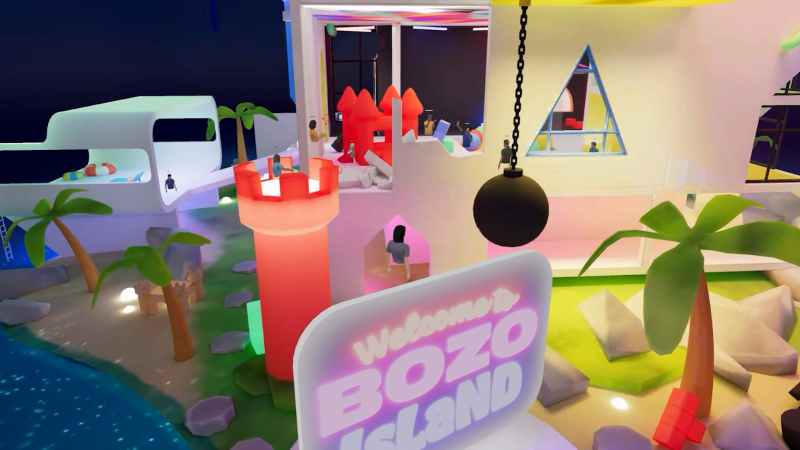 EMERGING TECH
EMERGING TECH
 EMERGING TECH
EMERGING TECH
 EMERGING TECH
EMERGING TECH
Spatial Systems Inc., formerly the creator of a virtual reality collaboration platform, said today that it’s dramatically shifting the focus of its company to become the metaverse for cultural events such as nonfungible token exhibitions, conferences and branded experiences.
The company also announced $25 million in new funding to develop its plans. Investors included Pine Venture Partners, Maven Growth Partners, Korea Investment Partners, KB Investment, Mirae and Balaji Srinvasan.
Spatial began as a collaboration platform designed to make virtual and augmented reality highly accessible to enterprise users so teams can work from anywhere. One thing the company discovered is that users wanted to access VR more quickly. To do that, Spatial made a web and mobile platform that could be loaded with a single click, without the need for an AR/VR headset.
With the launch of the web and mobile platform and the release of the free version of Spatial, the company quickly began to see users starting to use it as a springboard for cultural gatherings.
“When we made Spatial free and we launched it on web and mobile, one thing we noticed is that this level of immersion got people most of the way there while preserving most of the accessibility. You can just click a link and get in,” said Jacob Loewenstein, head of business at Spatial, told SiliconANGLE in an interview. “The cultural-events metaverse isn’t something we thought of. It’s something our users thought of and brought to us.”
As part of its shift in focus, Spatial has made its platform capable of supporting galleries for nonfungible token artwork and allowing the use of the technology on its platform. NFTs are tokens on blockchains that can provide digital proof of ownership for digital assets, such as artwork, collectible cards, music and other items.

Using the platform, NFT artists can set up their own galleries with their artwork along the walls for visitors to wander around and view it directly as if they’re at a real-world exhibition. Since it’s a virtual exhibit, they also can change the layout of the gallery and customize the environment. Spatial also allows visitors to purchase the NFTs directly from within the app.
The trading volume in the NFT market exceeded $10 billion in the third quarter of 2021. It’s an energetic market with a life of its own as creators are still entering and new use cases are being explored. Artwork and collectibles are not the only way that people have used NFTs. They have also been used for memorabilia, coupons and event tickets.
For an example of using NFTs as tickets, Loewenstein demonstrated a virtual environment in Spatial built by the Utah Jazz that’s designed to look like a fanciful version of the professional basketball team’s locker room. In it, fans can meet with players in an immersive environment. To access the space, users would need to purchase NFT tickets, and holding the tokens would allow them access to the space for the meets.
“I firmly believe that the most productive, sustainable and purpose-driven NFTs will always be the ones involving a real experience that the community truly cares about,” said Riley Demp, NFT strategist for the Utah Jazz. “In working with Spatial on the Utah Jazz extended reality project, I was moved to see how the metaverse could bring fans from all around the world together in a more intimate way than ever imagined before. If NFTs continue to be sold with the community in mind, experiential NFTs will be adored by buyers for a very long time to come.”
Spatial will also begin offering limited edition, purpose-built NFT environments for creators and collectors who want to own their own piece of the metaverse as NFTs themselves. These environments would be curated by designers Polycount and Reno in collaboration with the developer lab Meshed.
The first NFT environment drops start on Dec. 15 at 5 p.m. EST. Details on the drops can be found on Spatial’s website.
Support our mission to keep content open and free by engaging with theCUBE community. Join theCUBE’s Alumni Trust Network, where technology leaders connect, share intelligence and create opportunities.
Founded by tech visionaries John Furrier and Dave Vellante, SiliconANGLE Media has built a dynamic ecosystem of industry-leading digital media brands that reach 15+ million elite tech professionals. Our new proprietary theCUBE AI Video Cloud is breaking ground in audience interaction, leveraging theCUBEai.com neural network to help technology companies make data-driven decisions and stay at the forefront of industry conversations.